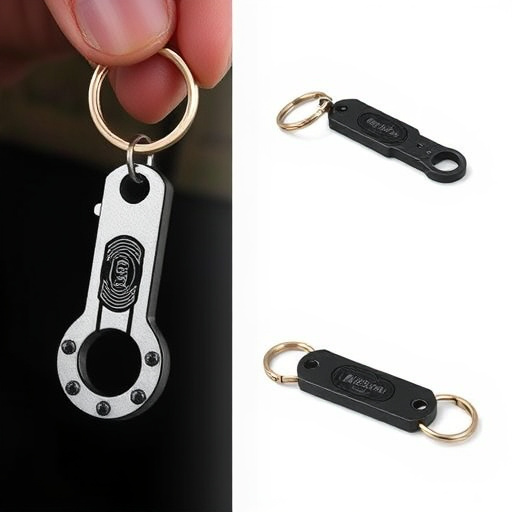Self-defense keychain weapons laws in the US vary significantly from state to state, making it critical for individuals to understand their local regulations before purchasing or carrying such devices. States like Texas and Florida allow open carry with specific restrictions, while New York and California have stricter bans. Key considerations include legal definitions, blade length limits, locking mechanisms, permit/registration needs, and age restrictions. Staying informed about Self Defense Keychain Laws by State ensures compliance, enhances legal protection, and promotes safe carrying practices, including proper maintenance and storage.
“In today’s world, personal safety is a top priority. Portable keychain weapons have emerged as a convenient self-defense option, but understanding the legal landscape surrounding them is crucial. This comprehensive guide delves into the ‘Understanding Self-Defense Keychain Laws: A Comprehensive Overview,’ exploring state-by-state regulations on these compact tools.
From safety features to consider when choosing a keychain weapon to a detailed State-by-State Guide on self-defense laws, this article equips readers with essential knowledge for making informed decisions about personal protection.”
- Understanding Self-Defense Keychain Laws: A Comprehensive Overview
- Safety Features to Consider in Portable Keychain Weapons
- State-by-State Guide: Self-Defense Keychain Legalities and Regulations
Understanding Self-Defense Keychain Laws: A Comprehensive Overview
In the United States, the legal landscape surrounding self-defense keychain weapons varies significantly from state to state. Understanding Self-Defense Keychain Laws by State is crucial for anyone considering carrying a portable defense tool for personal safety. Some states, like Texas and Florida, permit the open carry of certain types of knives or self-defense devices without a license, while others, such as New York and California, have stringent regulations or outright ban them.
Navigating these laws requires thorough research and understanding. It’s essential to know what constitutes a legal self-defense keychain weapon in your state, the restrictions on blade length, locking mechanisms, and any requirements for permits or registration. Staying informed about Self-Defense Keychain Laws by State ensures that you remain compliant, enhancing both your peace of mind and legal protection when using such devices for personal safety.
Safety Features to Consider in Portable Keychain Weapons
When considering a portable keychain weapon for self-defense, understanding the safety features and legal implications is paramount. Different states have varying Self Defense Keychain Laws, so it’s crucial to check local regulations before purchasing or carrying such a device. Some key safety features to look out for include automatic locking mechanisms that prevent accidental deployment, tamper-proof designs to safeguard against unauthorized use, and integrated safety switches that require a deliberate action to activate the weapon—ensuring you’re in control at all times.
Additionally, consider models with impact-activated sensors or specific target zones, which can help minimize collateral damage during an emergency. Regular maintenance and proper storage are also essential for keeping these devices safe. Always follow manufacturer guidelines for upkeep and keep your keychain weapon out of reach of children or anyone who might misuse it.
State-by-State Guide: Self-Defense Keychain Legalities and Regulations
In the United States, the legalities and regulations surrounding self-defense keychain weapons vary greatly from state to state. Understanding these laws is crucial for anyone considering carrying a portable keychain weapon as a means of personal protection. Some states have relatively permissive laws allowing concealed carry with minimal restrictions, while others enforce stringent rules or outright prohibit such devices.
When navigating Self Defense Keychain Laws by State, it’s essential to research the specific regulations in your location. Factors like age requirements, permit necessity, and restricted areas (such as schools or government buildings) differ widely. Additionally, some states may have unique classifications for keychain weapons, impacting their legality and the permits required to possess them. Staying informed about these details ensures compliance with local laws and promotes safe carrying practices.
When considering a portable keychain weapon for self-defense, it’s crucial to balance personal safety with understanding the intricate web of self-defense keychain laws by state. This comprehensive guide has equipped you with essential knowledge about safety features and legal regulations, empowering you to make informed decisions. Remember that staying informed about your rights and taking proactive steps towards personal security is key. Navigate the legal landscape of self-defense keychain weapons in your state and choose a device that aligns with both your needs and local laws.
